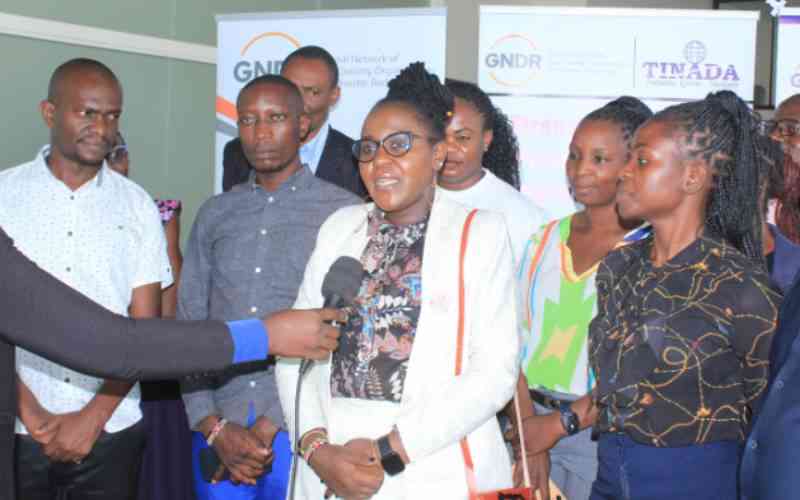
Civil society organisations have urged the government to improve early warning systems to better prepare communities for disasters.
During a two-day national workshop in Nairobi on May 6, Tinada Youth Action Africa, a youth-led community-based organisation, in partnership with the Global Network of Civil Society Organisations for Disaster Reduction (GNDR), called for clear policies and adequate funding to ensure the timely dissemination of early warning information to the public, particularly at the grassroots level.
“Early warnings are very key for the country,” said Roy Otieno, Executive Director of Tinada Youth Action Africa and National Focal Point of GNDR.
“This meeting is discussing the ways in which the government can ensure that early warnings are strategised well, with clear policies and funding available to ensure that early warning information reaches the public, especially at the grassroots,” he added.
Otieno noted that many disasters occur without the public receiving prior information, leading to reactive responses that consume significant resources.
He urged proactive measures, saying, “We don't need to respond fast; we need to ensure that we have early warning.”
The workshop flagged gaps identified in a global survey conducted by GNDR, revealing that information from the Kenya Meteorological Department often fails to reach communities effectively.
Otieno urged the establishment of a robust dissemination system to ensure that the public receives information promptly.
“We don't have proper infrastructure in place to ensure that information flows to the public freely and continuously,” he added.
“There needs to be proper leadership from the grassroots to the national level to ensure that available information helps the public prepare for disasters.”
Grace Ananda, GNDR East Africa member representative, stressed the importance of inclusive disaster preparedness in rapidly urbanising areas.
“We want to ensure that cities are resilient when it comes to disaster,” she said, adding, “Africa is urbanising so fast; hence, we need mechanisms to ensure that when disaster occurs in urban areas, the community, public sector, private sector, and everyone is included in rescue efforts.”
Ananda also pointed to limited public participation in disaster-related forums, calling for better mobilisation and communication strategies to involve grassroots communities.
“For example, the older people are unable to reach public places,” she noted, saying, “How can we work with the government to ensure that their voices are heard?”
Stay informed. Subscribe to our newsletter
The workshop participants plan to present their discussions at an upcoming global conference on disaster risk reduction, seeking to influence policy and ensure that local voices are included in national and international disaster preparedness strategies.